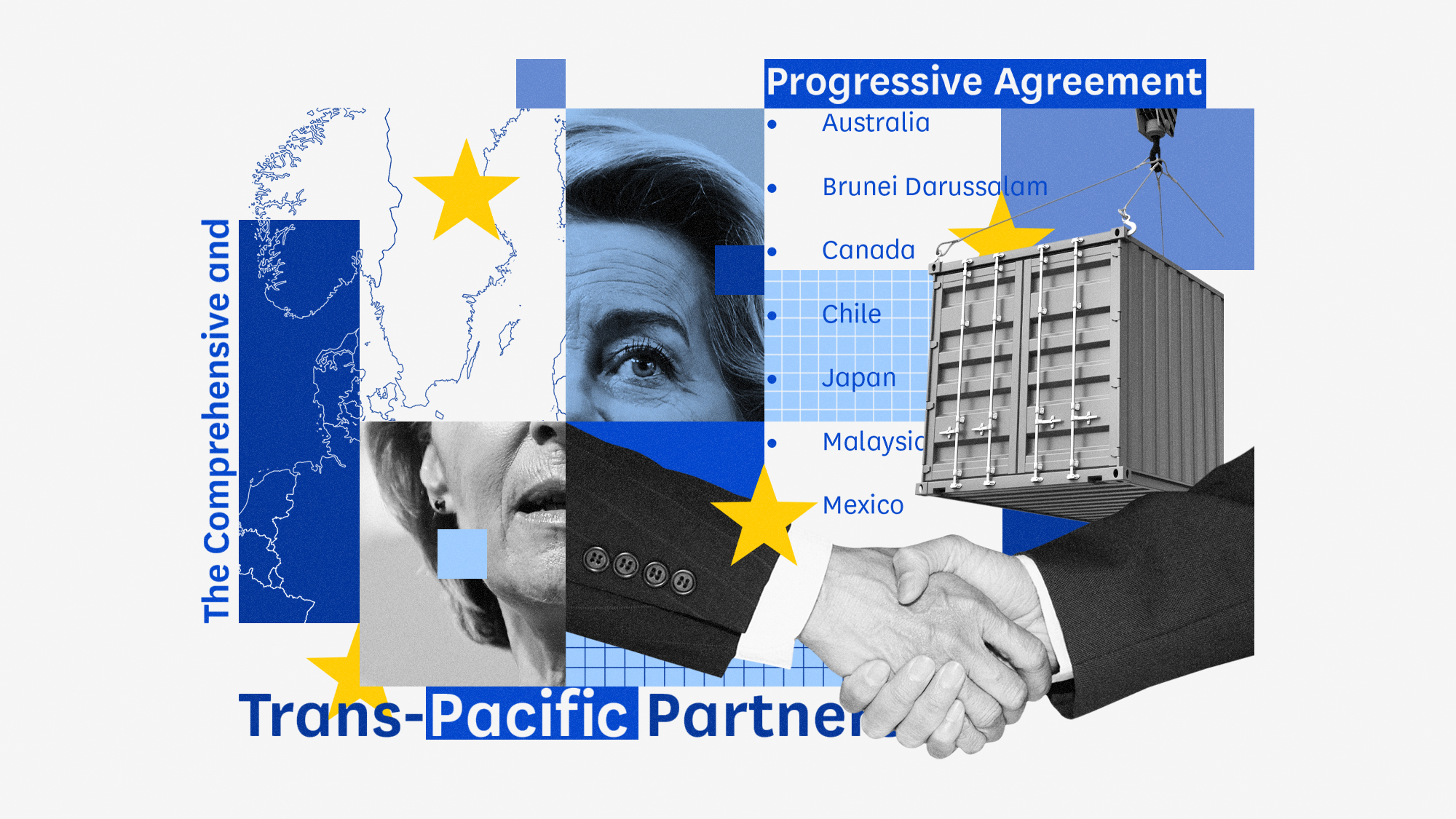Will Europe pivot to Asia on trade?
It could be an attempt to sidestep the impact of Trump's tariffs


A free daily email with the biggest news stories of the day – and the best features from TheWeek.com
You are now subscribed
Your newsletter sign-up was successful
Europe is considering all its options as President Donald Trump prepares to end the 90-day pause on the massive new tariffs he announced in April. One possible strategy for the European Union could be pivoting to Asia as a primary trade partner.
"'Goodbye Trump, hello Asia' is Europe's new trade plan," said Politico. EU President Ursula von der Leyen wants Europe to team up with the Comprehensive and Progressive Agreement for Trans-Pacific Partnership (CPTPP) — a 12-country trade group that includes Japan and Australia — to form a "coalition of the willing" that currently accounts for 30% of world trade. The plan would demonstrate that free trade is "possible on a rules-based foundation," said von der Leyen.
China may also benefit. The EU has long "moved in lockstep" with the United States to present a united front against Beijing on trade and other issues, but Europe and China could gain from teaming up in "blunting the impact from Trump's tariffs," said ABC News. The two sides will meet later this month, despite Europe's concerns about China's "human rights record, espionage, trade policies, military buildup and support for Russia."
The Week
Escape your echo chamber. Get the facts behind the news, plus analysis from multiple perspectives.

Sign up for The Week's Free Newsletters
From our morning news briefing to a weekly Good News Newsletter, get the best of The Week delivered directly to your inbox.
From our morning news briefing to a weekly Good News Newsletter, get the best of The Week delivered directly to your inbox.
What did the commentators say?
Europe and Asia built their economies on a free trade foundation that is "under threat," said Columbia University economist Shang-Jin Wei at Asialink. Cooperation between the two regions makes sense "given that everyone will suffer from these shocks." Von der Leyen's proposed partnership with the CPTPP "would establish trading rules for almost the whole world" that would be able to sidestep the "irresponsible behavior" of any single country. Building that new system will be challenging, but the "alternative will be far costlier to Asia and Europe."
There have been "years of stalled efforts" to jump-start Euro-Asian economic partnerships, said Brian P. Klein at The South China Morning Post. But a partnership now is among the "shrinking number of options" to "buffer both regional economies" from Trump's trade wars. The U.S. is not the only problem: China's economy is "not in great shape" and cannot absorb exports that its Asian neighbors were previously shipping to America. That creates a "rare opportunity" for European and Asian countries to get a deal done.
What next?
Negotiators from the U.S. and Europe spent the weekend haggling over a "skeletal trade deal" that would spare the EU the worst of the 50% tariffs Trump originally threatened, said The Washington Post. EU officials are angry at the situation. Trump's trade war is "madness," said one unidentified European official. The new tariffs will not help the "wider global supply chains or the overall global economy."
The whole world is scrambling to mitigate the consequences of Trump's tariffs, Akanksha Sinha said at The Diplomat. The muddle could lead to a new order of "middle powers leading global economic growth." That would have sounded "fantastical" not long ago, "but apparently a lot can happen in 90 days."
A free daily email with the biggest news stories of the day – and the best features from TheWeek.com
Joel Mathis is a writer with 30 years of newspaper and online journalism experience. His work also regularly appears in National Geographic and The Kansas City Star. His awards include best online commentary at the Online News Association and (twice) at the City and Regional Magazine Association.
-
 What are the best investments for beginners?
What are the best investments for beginners?The Explainer Stocks and ETFs and bonds, oh my
-
 What to know before filing your own taxes for the first time
What to know before filing your own taxes for the first timethe explainer Tackle this financial milestone with confidence
-
 The biggest box office flops of the 21st century
The biggest box office flops of the 21st centuryin depth Unnecessary remakes and turgid, expensive CGI-fests highlight this list of these most notorious box-office losers
-
 Is the US in a hiring recession?
Is the US in a hiring recession?Today's Big Question The economy is growing. Job openings are not.
-
 Did markets’ ‘Sell America’ trade force Trump to TACO on Greenland?
Did markets’ ‘Sell America’ trade force Trump to TACO on Greenland?Today’s Big Question Investors navigate a suddenly uncertain global economy
-
 Will Trump’s 10% credit card rate limit actually help consumers?
Will Trump’s 10% credit card rate limit actually help consumers?Today's Big Question Banks say they would pull back on credit
-
 Can Trump make single-family homes affordable by banning big investors?
Can Trump make single-family homes affordable by banning big investors?Talking Points Wall Street takes the blame
-
 What will the US economy look like in 2026?
What will the US economy look like in 2026?Today’s Big Question Wall Street is bullish, but uncertain
-
 Tariffs have American whiskey distillers on the rocks
Tariffs have American whiskey distillers on the rocksIn the Spotlight Jim Beam is the latest brand to feel the pain
-
 TikTok secures deal to remain in US
TikTok secures deal to remain in USSpeed Read ByteDance will form a US version of the popular video-sharing platform
-
 How will China’s $1 trillion trade surplus change the world economy?
How will China’s $1 trillion trade surplus change the world economy?Today’s Big Question Europe may impose its own tariffs
